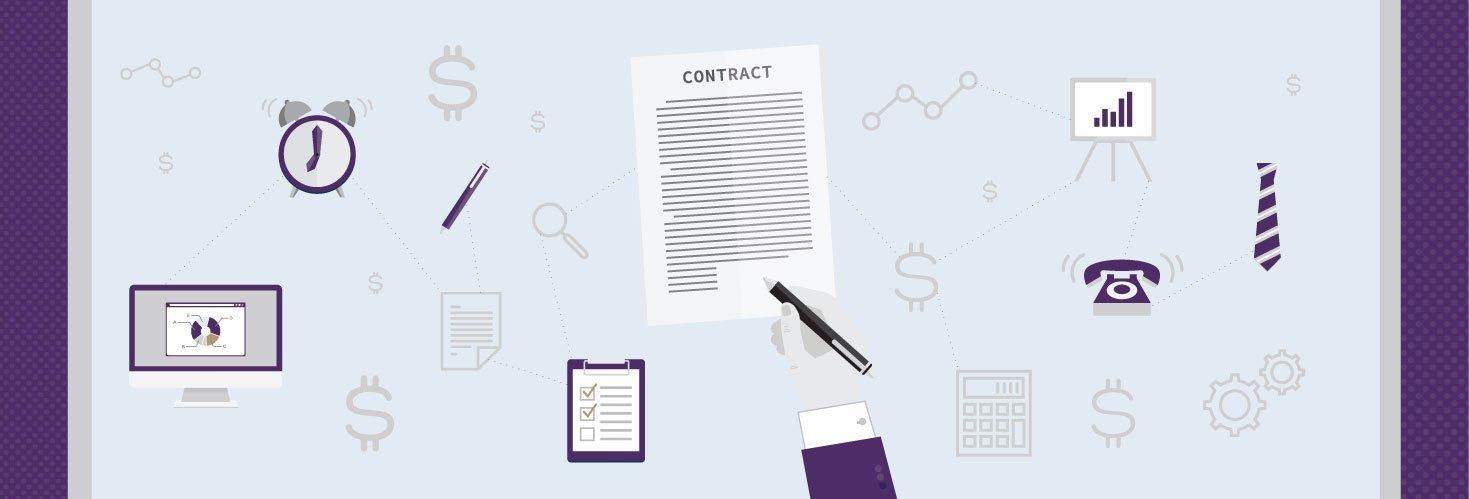Because marketing is such a powerful and under appreciated tool to influence the success or failure of sales and customer retention, the marketing industry has a habit of forgetting just how critical the sales call or meeting is to the deal. Make no mistake, it doesn’t matter how well you’ve conveyed your brand prior to your first person-to-person interaction, you will be judged most for how you communicate when you’re on the phone or across the table.
And in this world of “seller beware” (as Daniel Pink notes in To Sell is Human) in which the buyer has all of the power, there is nothing more detrimental than a sales call with no purpose. Many uncomfortable calls, presentations, and meetings occur because sales and account professionals don’t follow basic rules for properly setting the stage for the call.
When a call starts well, it ends well. But when the conversation gets derailed and there’s no clear mutually-agreed upon agenda to keep the 3-10 people involved all focused on the prize, time is wasted and opportunities are lost.
If your client meetings suck, then the Up Front Contract should be your solution. No, this isn’t a document to be signed by your prospect or customer before the meeting. Instead, it’s a set of mutually agreed upon expectations that keeps everyone on track, and to which you can refer when the call starts to drift into areas you’d rather avoid.
According to David Sandler, the guy who gave The Up Front Contract its name, “…if an Up Front Contract is established, the sales professional can confidently guide client interactions and keep the sales process on track.”
Translation: let’s show an appreciation for one another’s time. Set expectations. And overstate the obvious because it’s never safe to assume what you know has been beamed into the other participants’ brains.
Here are the five areas all Up Front Contracts should cover:
1. Purpose
Why are we here? Plain and simple. No matter who set the meeting or made the call, it’s critical that everyone understands the reason that made it a reality.
2. The Amount of Time Allotted
It doesn’t matter how painstakingly clear your calendar invite was, meetings run over. And while this is occasionally ok, most of the time this is a bad thing. That means it’s up to you to re-emphasize the time allotted to meet everyone’s goals. We keep all parties honest and efficient at managing the clock, so that when we start approaching the 10min mark and still have 10 things to talk about, we are confidently able to interrupt the conversation and re-focus it.
3. The Client’s Agenda
If you’ve ever found yourself on a date in which one person thought the date went really well, but ends up never hearing from the other person again (you really should have called them back, you heartbreaker), then you can probably understand why this is important. Barreling ahead without taking the time to ask the client what they want to accomplish can leave the best of sales reps on the other end of a dead conversation. Similarly, waiting to ask until the end of the conversation (i.e., “Did we cover everything?”) might as well be pointless – no one really wants another call to talk about the things you should have covered the first time around.
4. Your Agenda
No ulterior motives please. Be upfront about what you’d like to discuss, and you will gain a tremendous amount of credibility with the customer. They know you’re trying to sell to them, so there’s no use hiding it. But it may be helpful for them to also know that you don’t really expect them to make any decisions this time around.
5. Outcome and Next Steps
Once we walk away, what needs to happen next? This is your chance to protect yourself from ever having to worry about waiting to hear back from the person on the other line. If we hit these points, then this is what we would all like to see happen next and this is when they will happen. Uncertainty of roles and responsibilities is the last thing anyone wants after investing in the time together, so be prepared to make sure all are aware of what’s down the road. Over communicate and encourage questions here.
Remember: the purpose of the Up Front Contract is to make your meeting more efficient and effective. While it may seem like a lot to cover, all of these points can very easily be discussed in 5 minutes, which, once refined, turns out to be a pretty great return on investment for all involved. That means the most important questions you have to answer after implementing the Up Front Contract may very well be what to do with all of the extra time and deals you have on your hands.





